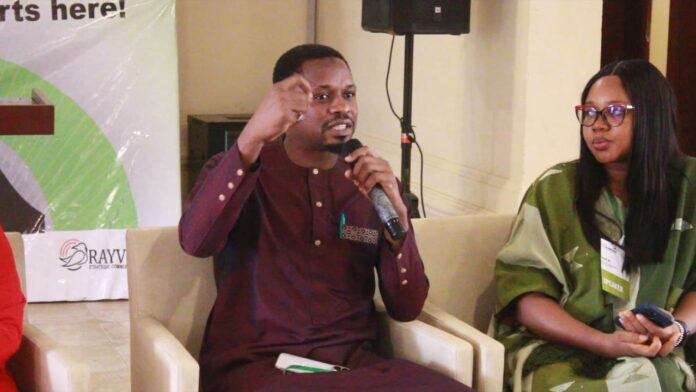Joel Ajayi
Young innovators have emphasized the need for improved connectivity as a crucial tool in bridging the information gap that hinders sustainable development, particularly in underserved communities. This call to action was a central theme at the Global Accessibility Awareness Day (GAAD) event, held under the theme “Accessible by Design: Inclusion Starts Here.”
The event brought together tech entrepreneurs, policy advocates, and communication experts to discuss the digital divide and the role of innovation in promoting inclusivity across Nigeria. The highlight of the day was a panel discussion where speakers identified a lack of awareness, poor infrastructure, and limited access to digital resources as major challenges confronting youth-led innovation in the country.
Speaking at the event, Asma’u Abdullahi, convener of the program and Executive Director of Slumtech—a FinTech organization focused on developing sustainable technologies for urban low-income communities—stressed the need for a more enabling environment for young innovators to thrive.
“This is an avenue for everyone in the FinTech sector to thrive, connect, and explore opportunities,” she said. “We put a lot into organizing this—bringing together resource persons and creating platforms for knowledge-sharing. Beyond this conference, we’ve planned courses and clubs to continue mentoring them. Through Slumtech, we are breaking barriers and serving as a buffer, especially for those in rural communities who lack access to connectivity. The government can’t do it all alone. We’re stepping in to provide the basics and support young people, especially young women, in accessing the opportunities they deserve.”
Abdullahi also encouraged more female participation in tech, urging young girls to seize available opportunities, emphasizing that the digital economy must be inclusive and empowering for all.
Eric Obianozie, founder of 24 Telemed, a healthcare startup offering telemedicine services to remote communities, echoed similar sentiments. He commended the initiative, noting how programs like GAAD could help dismantle barriers and demystify technology for people in underserved regions.
“When we launched 24 Telemed in Anambra and Kaduna, we encountered serious resistance,” Obianozie recounted. “Many people weren’t familiar with technology and didn’t trust virtual consultations. It was a shock to see how much skepticism there was. But with programs like this, I’m hopeful that young people—especially those in rural areas—will begin to see digital tools not as foreign, but as gateways to better healthcare, education, and economic empowerment. Globalization has put knowledge at our fingertips, and we must harness it.”
Also lending his voice was Jakpo Ukueku, CEO of Rayven Strategic Communication Limited, a firm that provides marketing and communication strategy for organizations. He pointed out that lack of access to information remains one of the most pressing issues stifling innovation in Nigeria.
“There’s a serious knowledge gap in Nigeria,” Ukueku said. “A lot of people in the tech space are not just held back by infrastructure but by a lack of information. What we’re trying to do through conferences like this is to shorten that gap, promote strategic partnerships, and encourage sponsorship. We can’t keep relying on the government. The private sector has a huge role to play in promoting inclusivity and technological advancement.”
this event further underscores a growing commitment among stakeholders to use innovation as a force for social good. With voices like Abdullahi, Obianozie, and Ukueku leading the charge, the message is clear: access, awareness, and collaboration are the keys to bridging the digital divide and ensuring that no one is left behind in the age of globalization.





